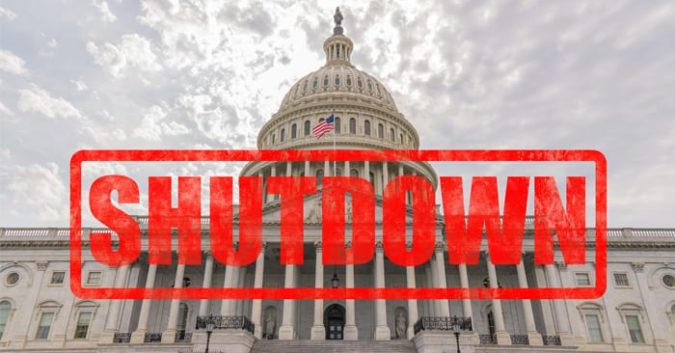The partial government shutdown has forced many federal agencies to work without the resources they need. Since the shutdown began on December 22, tens of thousands of federal employees have been told to stop working. In many major agencies, the skeleton-crew of federal employees who are still active continue to work without pay.
At the Food and Drug Administration (FDA), the lack of funding has had an immediate impact. Approximately 41% of the agency has been furloughed. That means the FDA trying to operate with roughly 7,000 employees less than it typically requires.
“It’s not business as usual,” FDA Commissioner Dr. Scott Gottlieb told NBC News. “There are important things we are not doing.” This is no small matter, because the agency oversees a number of important markets that continue to function whether the FDA has funding or not.
The FDA is charged with protecting the public health of Americans by regulating several important industries. The agency’s primary responsibilities include:
- Ensuring safety and security of the nation’s food supply.
- Ensuring the safety of drugs, medical devices, biological products, and cosmetics.
- Regulating the manufacturing, marketing, and distribution of tobacco and e-cigarette products and reducing tobacco use by minors.
- Advancing medical innovation and helping the public get accurate, science-based information about food, drugs, devices, and products.
With funding and staffing shortages, the agency is not able to maintain regular oversight in these vital areas. Each area has been affected in a different way.
Concerns Over the Safety of the American Food Supply
Perhaps the most pressing concern for Americans is that the FDA has had to cut back on its food inspections. Currently, foreign foods are still being inspected, but routine domestic inspections have all but stopped.
Dr. Gottlieb is working to secure funding to call back the employees necessary to carry out domestic inspections. He’s prioritized “high-risk” facilities, which includes places with past safety and contamination issues, as well as those that process foods prone to contamination. As it stands right now, however, these employees are still furloughed.
This lack of FDA oversight has some worried about the safety of the nation’s food supply. Sarah Sorscher, Deputy Director of Regulatory Affairs at the Center for Science in the Public Interest, urged the FDA to be more transparent about the effects of the shutdown.
Dr. Gottlieb says that Americans have nothing to worry about. On January 9, he announced the end of the E. coli outbreak linked to romaine lettuce. The FDA played a vital role in coordinating the response to the outbreak, which left more 26 people hospitalized. He has promised that the FDA continues to carry out this type of work:
“… even during this partial lapse in federal funding. Our ability to monitor for and respond to emerging food safety issues is maintained through the efforts of a very dedicated workforce that’s fully committed to this mission”
This sounds good, but one rightfully fears for the continued dedication of employees who are working without pay.
Reviews of New Drugs and Medical Devices Slowed
In addition to government funding, the FDA receives funding from the fees it charges to inspect, review, and approve new drugs and medical devices. The FDA is still reviewing drugs and medical devices from 2018, which are covered by fees, but they are not accepting new applications for 2019 until the government can reach a deal and stop the shutdown.
Gottlieb and the FDA are trying to spread resources as best they can, but there is simply no way they can carry out all of their regular duties without staff and funding. In addition to suspending new reviews, the agency has been forced to cut back their work on regulatory guidance documents which inform the public about the safety of medical devices, drugs, and biologics.
At the very least, the shutdown has generated a backlog of reviews that is sure to complicate work down the line. For some, the shutdown is directly delaying the approval of potentially life-saving cures.
Tobacco and E-Cig Manufacturers Disregard FDA Guidance
The lack of funding hamstringing the agency comes amid a spike in teen nicotine use spurred by e-cigarettes. Recently, the FDA has been active in trying to stop e-cig manufacturers from marketing their devices to underage users. Research shows that from 2017 to 2018, e-cigarette use rose 77% among high schoolers, and nearly 50% among middle schoolers.
At the end of last year, Gottlieb received commitments from e-cig makers that they would work to stop the teen vaping epidemic. Now it seems those promises were lies. Dr. Gottlieb has accused these companies of backing out on their commitment to curb underage nicotine use. The question is, what will a weakened FDA be able to do about it?
